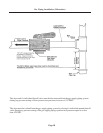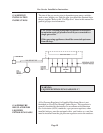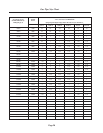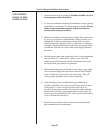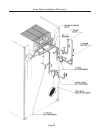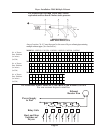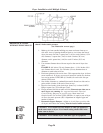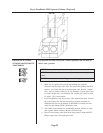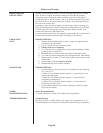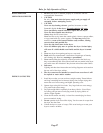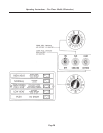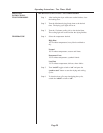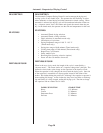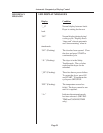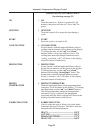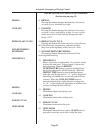
Page 26
Nothing is more important than air flow for the proper operation of a clothes
dryer. A dryer is a pump which draws make-up air from the out-of-doors,
through the heater, through the clothes and then forces the air through the
exhaust duct back to the out-of-doors. Just as in a fluid water pump, there must
be a fluid air flow to the inlet of the dryer, if there is to be the proper fluid air
flow out of the exhaust duct.
In summary, there must be the proper size out-of-doors inlet air opening (4-6
times the combined areas of the air outlet) and an exhaust duct, size and length
of which allows flow through the dryer with no more than 0.3 inches water
column static pressure in the exhaust duct.
In some instances, special fans are required to supply make-up air, and/or boost
exhaust fans are required for both regular and energy saving models.
FOR BEST DRYING:
1. Exhaust duct maximum length 14 feet (4.3 mm) of straight duct and
maximum of two 90° bends.
2. Use 45° and 30° elbows wherever possible.
3. Exhaust each dryer separately.
4. Use 2 feet (0.6 m) of straight duct on dryer before installing an elbow
on Energy-Saver models only.
5. Do not install wire mesh or other restrictions in the exhaust duct.
6. Use clean-outs in the exhaust duct and clean periodically when needed.
7. Never exceed 0.3 inches (7.6 mm) water column static pressure in the
exhaust duct.
8. Inside surface of the duct must be smooth.
9. Recommend pop rivets for duct assembly.
FOR BEST DRYING:
1. Provide opening to the out-of-doors in accordance with the following:
For each dryer—
6 inches (15 cm) diameter exhaust requires a 1 square feet (0.1 m²)
opening for make-up air.
8 inches (20 cm) diameter exhaust requires a 2 square feet (0.2
m²)opening for make-up air.
12 inches (30 cm) diameter exhaust requires a 4 square feet (0.4
m²)opening for make-up air.
2. Use barometric shutters in the inlet air opening to control air when
dryers are not running.
Other Recommendations
To assure compliance, consult local building code requirements.
Troubleshooting
Hot dryer surfaces, scorched clothes, slow drying, lint accumulations, or air
switch malfunction are indicators of exhaust duct and/or make-up air problems.
Exhaust and Venting
DRYER AIR FLOW
INSTALLATION
EXHAUSTING
DUCT
MAKE-UP AIR
OTHER
RECOMMENDATIONS
TROUBLESHOOTING



